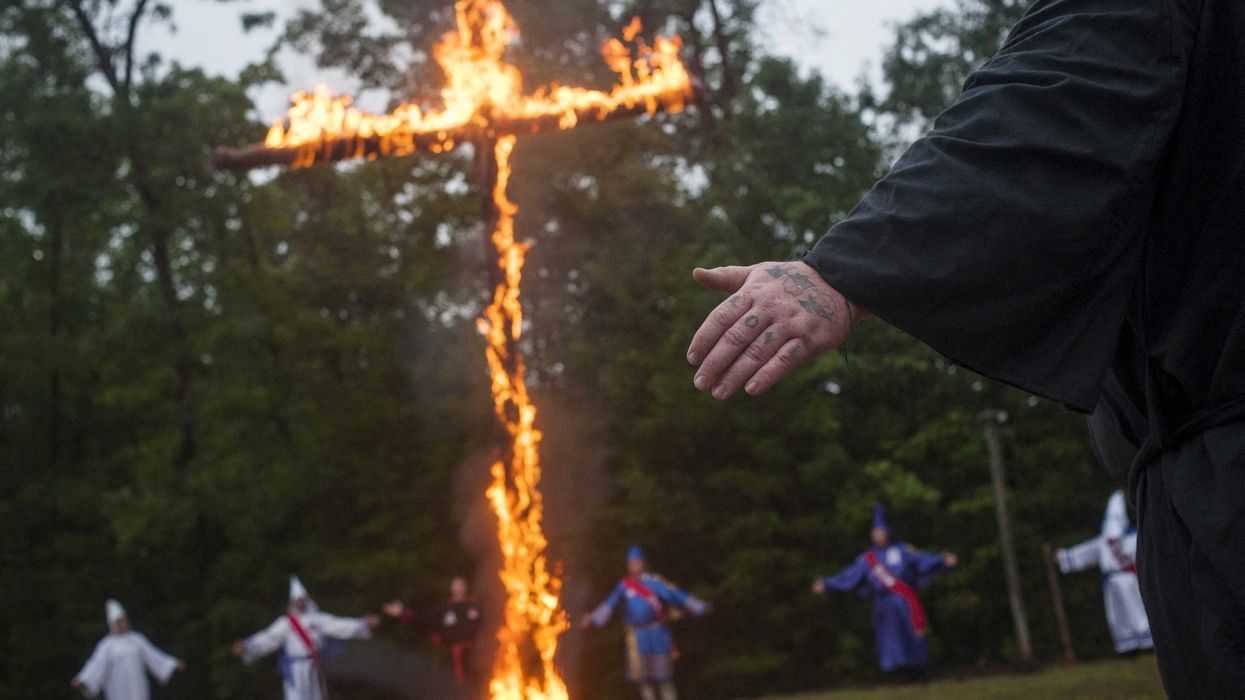Trump made it impossible to 'turn a blind eye to racism' — by bringing it to the forefront': author

REUTERS PICTURES 40th ANNIVERSARY COLLECTION: A tattoo on the knuckles of a Klansman reads "Love" as he participates with members of the Nordic Order Knights and the Rebel Brigade Knights, groups that both claim affiliation with the Ku Klux Klan, in a cross lighting ceremony on a fellow member's property in Henry County, Virginia, August 9, 2014. The Ku Klux Klan, which had about 6 million members in the 1920s, now has some 2,000 to 3,000 members nationally in about 72 chapters, or klaverns, according to the Southern Poverty Law Center, an organization that monitors extremist groups. REUTERS/Johnny Milano SEARCH "REUTERS PICTURES 40th ANNIVERSARY COLLECTION" FOR THIS PACKAGE
REUTERS PICTURES 40th ANNIVERSARY COLLECTION: A tattoo on the knuckles of a Klansman reads "Love" as he participates with members of the Nordic Order Knights and the Rebel Brigade Knights, groups that both claim affiliation with the Ku Klux Klan, in a cross lighting ceremony on a fellow member's property in Henry County, Virginia, August 9, 2014. The Ku Klux Klan, which had about 6 million members in the 1920s, now has some 2,000 to 3,000 members nationally in about 72 chapters, or klaverns, according to the Southern Poverty Law Center, an organization that monitors extremist groups. REUTERS/Johnny Milano SEARCH "REUTERS PICTURES 40th ANNIVERSARY COLLECTION" FOR THIS PACKAGE

